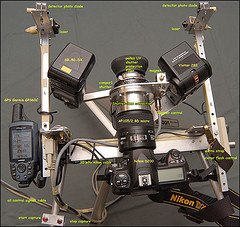March 27th, 2009 by Kevin Lindstrom | No Comments »
Glacier change in western North America: Influences on hydrology, geomorphic hazards and water quality. Moore, R.D.; Fleming, S.W.; Menounos, B.; Wheate, R.; Fountain, A.; Stahl, K.; Holm, K.; Jakob, M. Hydrological Processes Volume 23, issue 1, p 42-61, 2009.
The glaciers of western Canada and the conterminous United States have dominantly retreated since the end of the Little Ice Age (LIA) in the nineteenth century, although average rates of retreat varied from strong in the first-half of the twentieth century, with glaciers stabilizing or even advancing until 1980, and then resuming consistent recession. This retreat has been accompanied by statistically detectable declines in late-summer streamflow from glacier-fed catchments over much of the study area, although there is some geographical variation: over recent decades, glaciers in northwest BC and southwest Yukon have lost mass dominantly by thinning with relatively low rates of terminal retreat, and glacier-fed streams in that region have experienced increasing flows. In many valleys, glacier retreat has produced geomorphic hazards, including outburst floods from moraine-dammed lakes, mass failures from oversteepened valley walls and debris flows generated on moraines. In addition to these hydrologic and geomorphic changes, evidence is presented that glacier retreat will result in higher stream temperatures, possibly transient increases in suspended sediment fluxes and concentrations, and changes in water chemistry. With climate projected to continue warming over the twenty-first century, current trends in hydrology, geomorphology and water quality should continue, with a range of implications for water resources availability and management and hydroecology, particularly for cool and cold-water species such as salmonids.
Volume 23 Issue 1 of the the journal Hydrological Processes is a Special Issue looking at the Hydrologic Effects of a Shrinking Cryosphere.
Submitted by Kevin Lindstrom Liaison Librarian for Earth and Ocean Sciences and Physical Geography.
Posted in Atmospheric Science, Earth and Ocean Sciences, General Science, Geography, Uncategorized | No Comments »
March 25th, 2009 by Eugene Barsky | No Comments »

Educause has released its new report – “7 Things You Should Know About Location-Aware Applications“.
Location-aware applications deliver online content to users based on their physical location. Various technologies employ GPS, cell phone infrastructure, or wireless access points to identify where electronic devices such as mobile phones or laptops are, and users can choose to share that information with location-aware applications. As mobile devices offer greater amounts of data about the environment through which we move, location-aware systems will become increasingly effective at predicting what users would like to know about in the geographical space around them, offering a layer of knowledge superimposed on the physical world that can be accessed for information and convenience.
You can research this topic in many of our online databases, however, IEEE digital Library would be your first source. Try this search in IEEE database – http://tinyurl.com/d6y5aj
** Photo by fotoopa
Posted in Amusing stuff, General Science, Geography, Main, Mathematics, Physics, Science - undegraduate classes | No Comments »
March 13th, 2009 by Kevin Lindstrom | No Comments »
Imagine no facebook, twitter, myspace, email, internet for a entire day?
Shutdown Day is a Global Internet Experiment whose purpose is to get people to think about how their lives have changed with the increasing use of the home computer, and whether or not any good things are being lost because of this.
The idea of Shutdown Day project is simple – just shutdown your computer for one whole day of the year and involve yourself in some other activities: outdoors, nature, sports, fun stuff with friends and family – whatever, just to remind yourself that there still exists a world outside your monitor screen.
For more information, go to Shutdown Day
Submitted by Kevin Lindstrom Science and Engineering Liaison Librarian
Posted in Atmospheric Science, Chemical and Biological Engineering, Chemistry, Civil Engineering, Earth and Ocean Sciences, General Science, Geography, Main, Materials Engineering, Mathematics, Mechanical Engineering, News, Podcasts, Science - undegraduate classes, Statistics, Teaching, Uncategorized, Wood Sciences | No Comments »
March 6th, 2009 by Kevin Lindstrom | No Comments »
The 2009 UPPAC conference takes place on Saturday March 14, 2009 at the Hennings Building here on the UBC Vancouver campus.
The Undergraduate Pacific Physics and Astronomy Conference is the conference where undergraduate students from Western Canada and the Pacific Northwest can share their research, learn about further opportunities for research and education, and meet other undergraduate students. UPPAC features undergraduate research talks, lab tours, a keynote lecture by a distinguished researcher, and lots of opportunities for undergraduate students to network and to explore Vancouver and the UBC campus.
For an example of papers presented at last years conference, have a look at the 2008 UPPAC Conference Proceedings.
Submitted by Kevin Lindstrom Liaison Librarian for Physics and Astronomy
Posted in General Science, News, Physics, Science - undegraduate classes | No Comments »

